Summer Mastitis: Causes, Symptoms, Prevention, and Treatment
Summer mastitis is a seasonal and costly condition affecting dairy and beef cows, particularly during the warm months.
No products in the cart.
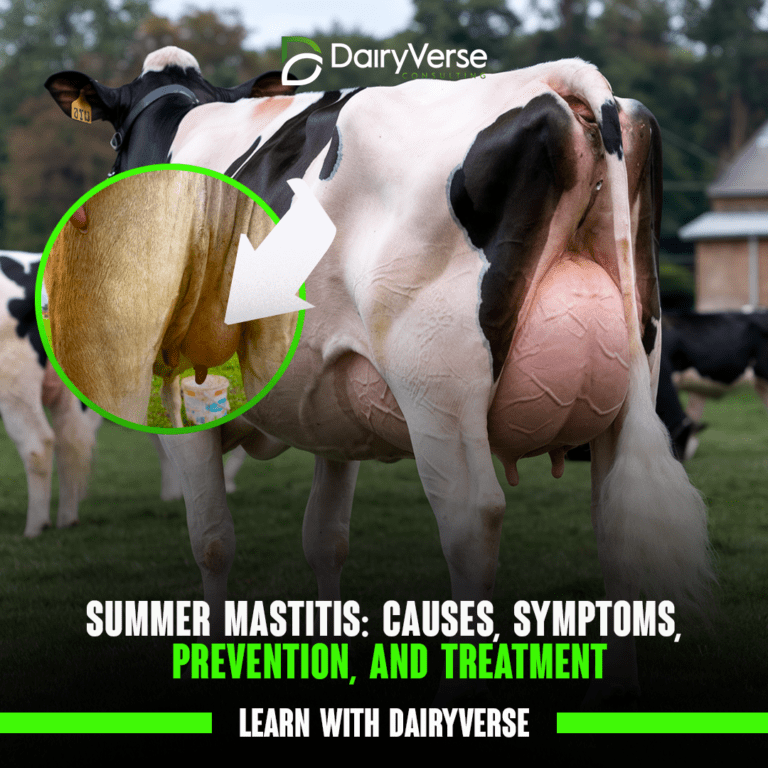
Summer mastitis is a seasonal and costly condition affecting dairy and beef cows, particularly during the warm months.
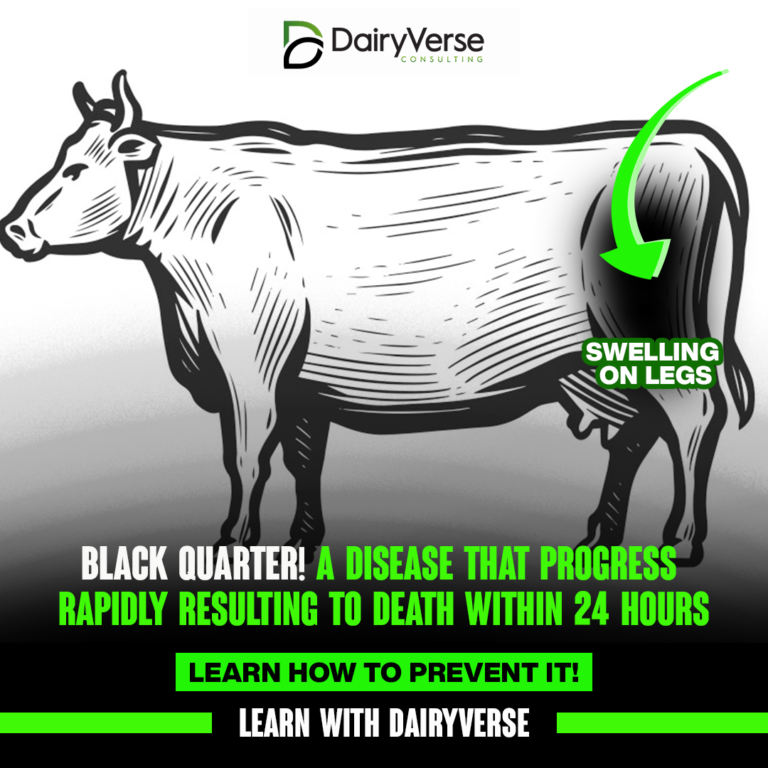
Black Quarter (BQ), also known as Blackleg, is one of the most devastating diseases that can affect cattle. Caused by the bacterium Clostridium chauvoei, this disease is often fatal and requires immediate attention. Understanding its causes, symptoms, prevention, and treatment is essential for cattle farmers to protect their herds.
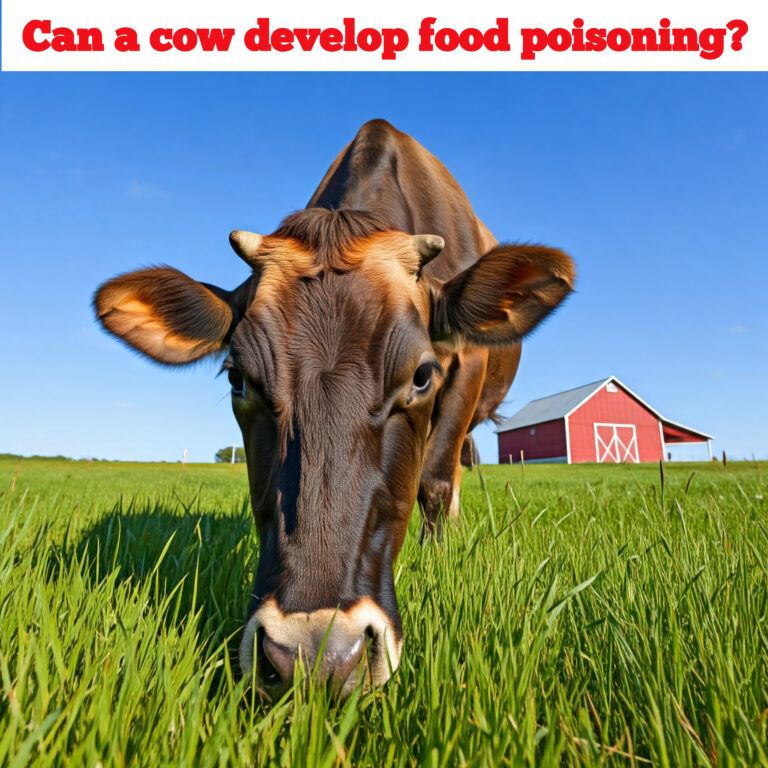
Cows cannot develop food poisoning in the same way that humans do. Food poisoning in humans is typically caused by consuming food contaminated with bacteria, viruses, or toxins. However, cows have a complex digestive system that is adapted to process a variety of plant-based materials, including potentially harmful substances.
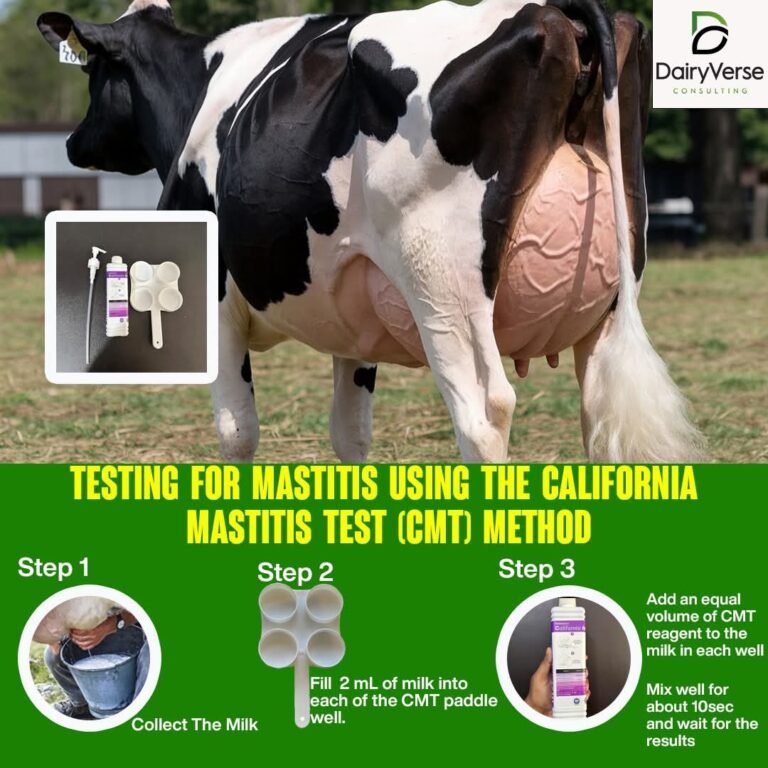
The California Mastitis Test is an invaluable tool for dairy farmers to detect mastitis early and maintain herd health. Regular testing, combined with proper hygiene and management, can significantly reduce mastitis cases, improving milk quality and boosting farm profitability. By integrating the CMT method into your herd management routine, you ensure healthier cows and a more productive dairy operation.
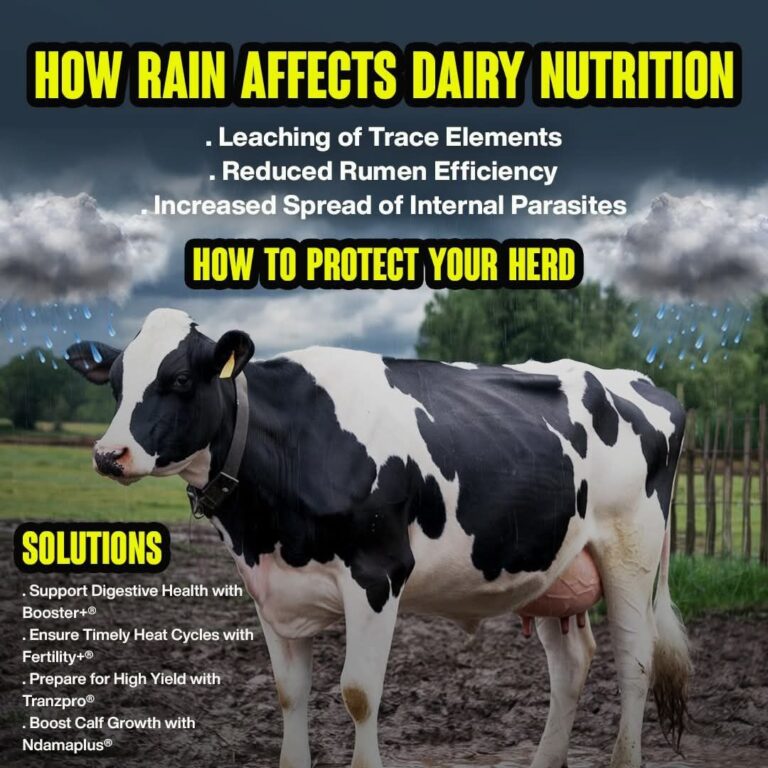
Rainy seasons can significantly impact dairy nutrition, exposing your herd to various challenges that can reduce productivity and overall health. Understanding these effects and taking preventive measures can help you maintain your herd’s well-being and productivity.
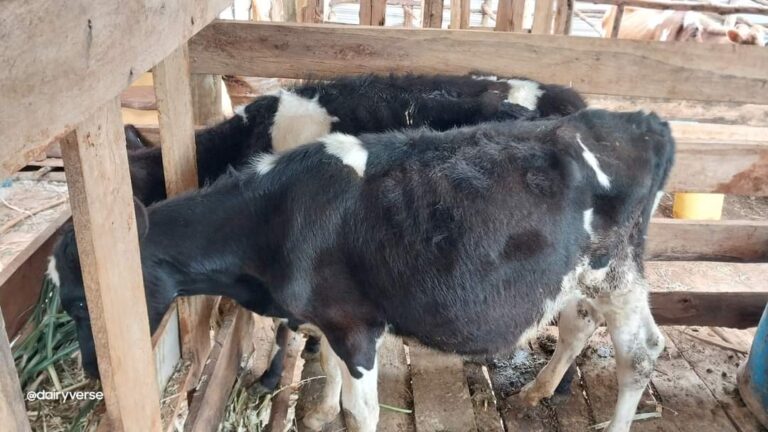
A big stomach (or enlarged abdomen) in calves can be due to various factors, some of which are normal and others that may indicate health issues. Here are some common reasons and their potential effects:

Milk curdling, also known as “kuganda” in some regions, is a common issue that affects milk quality and can lead…